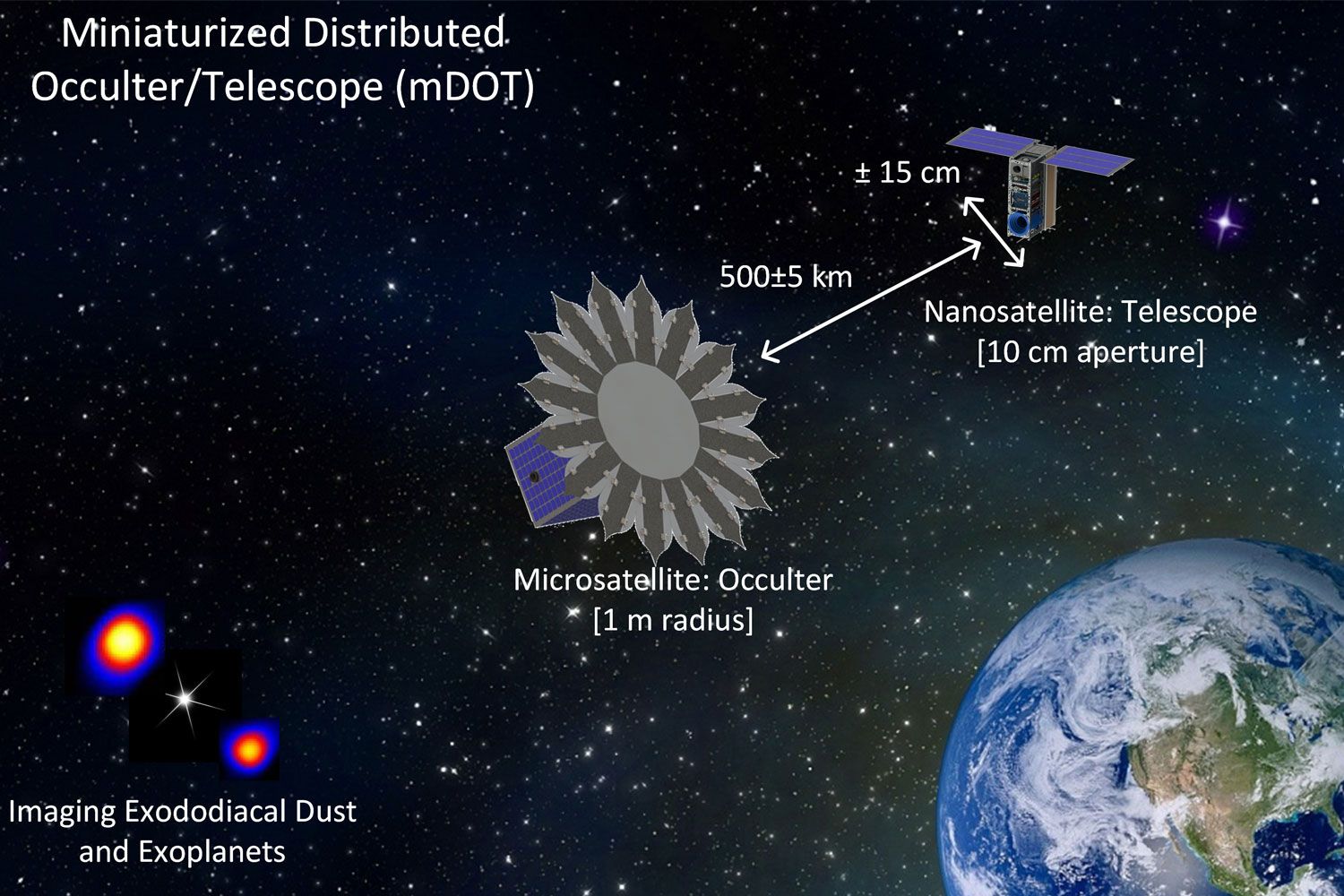In our hunt for Earth-like planets and extraterrestrial life, we’ve found thousands of exoplanets orbiting stars other than our sun. The caveat is that most of these planets have been detected using indirect methods. Similar to how a person can’t look at anything too close to the sun, current telescopes can’t observe potential Earth-like planets because they are too close to the stars they orbit, which are about 10 billion times brighter than the planets that surround them.
A possible solution might be to create an artificial solar eclipse with two precisely positioned spacecraft, according to Simone D’Amico, assistant professor of aeronautics and astronautics at Stanford and director of the Space Rendezvous Laboratory. One craft – known as a starshade – would position itself like the moon in a solar eclipse, blocking out the light of a distant star, so a second spacecraft with a telescope could view the nearby exoplanets from within the shadow cast by the starshade.
“With indirect measurements, you can detect objects near a star and figure out their orbit period and distance from the star,” said D’Amico, whose lab is working on this eclipsing system. “This is all important information, but with direct observation you could characterize the chemical composition of the planet and potentially observe signs of biological activity – life.”
